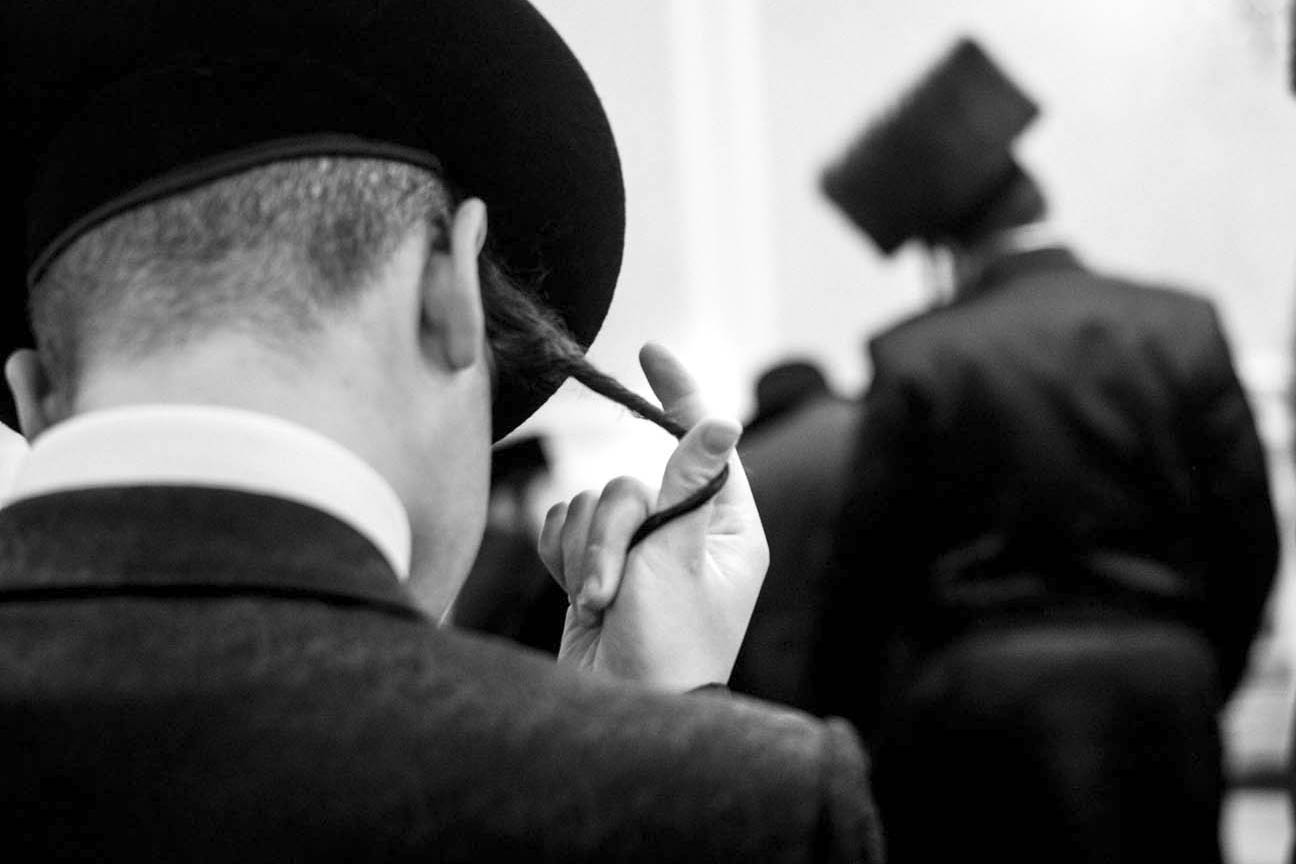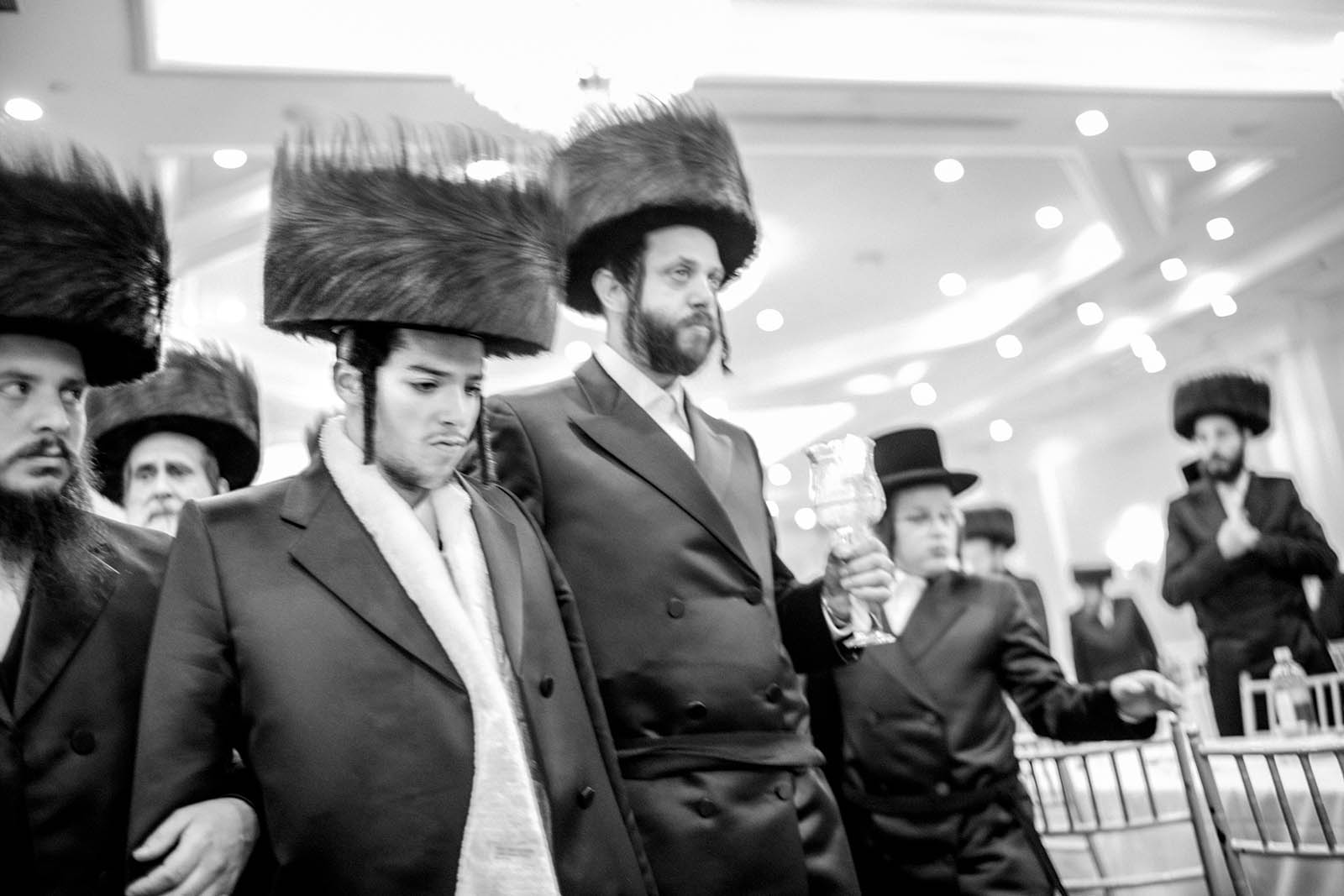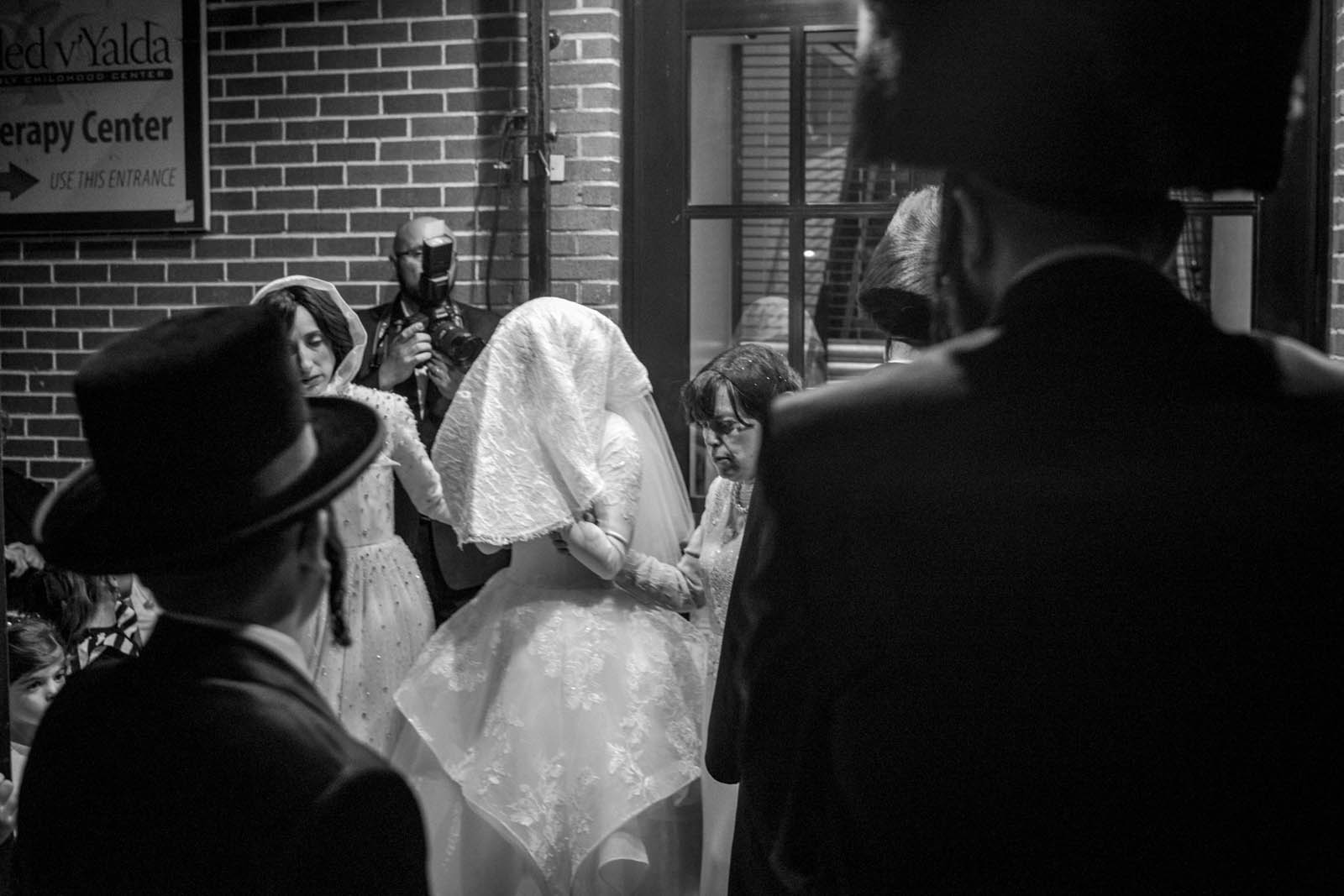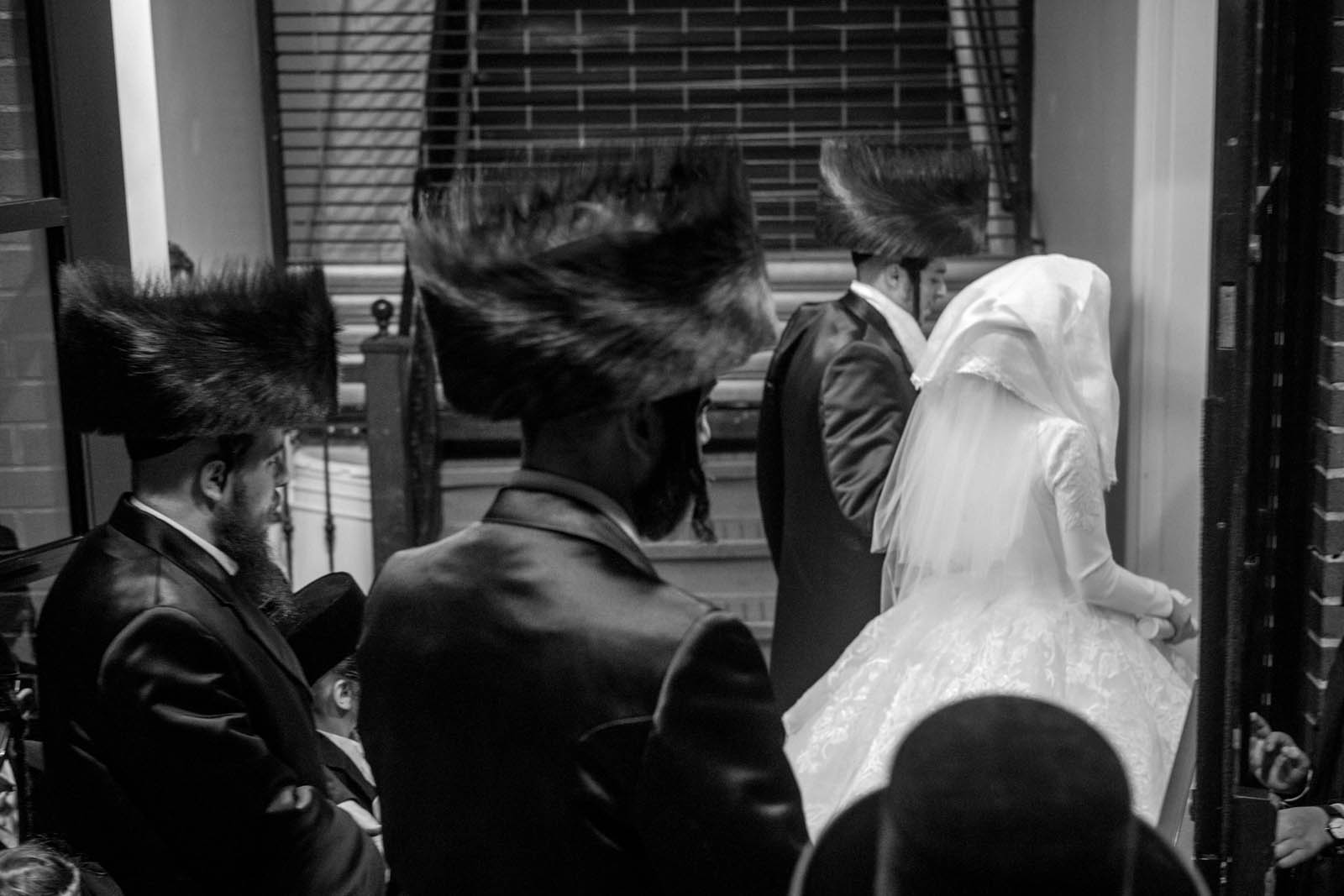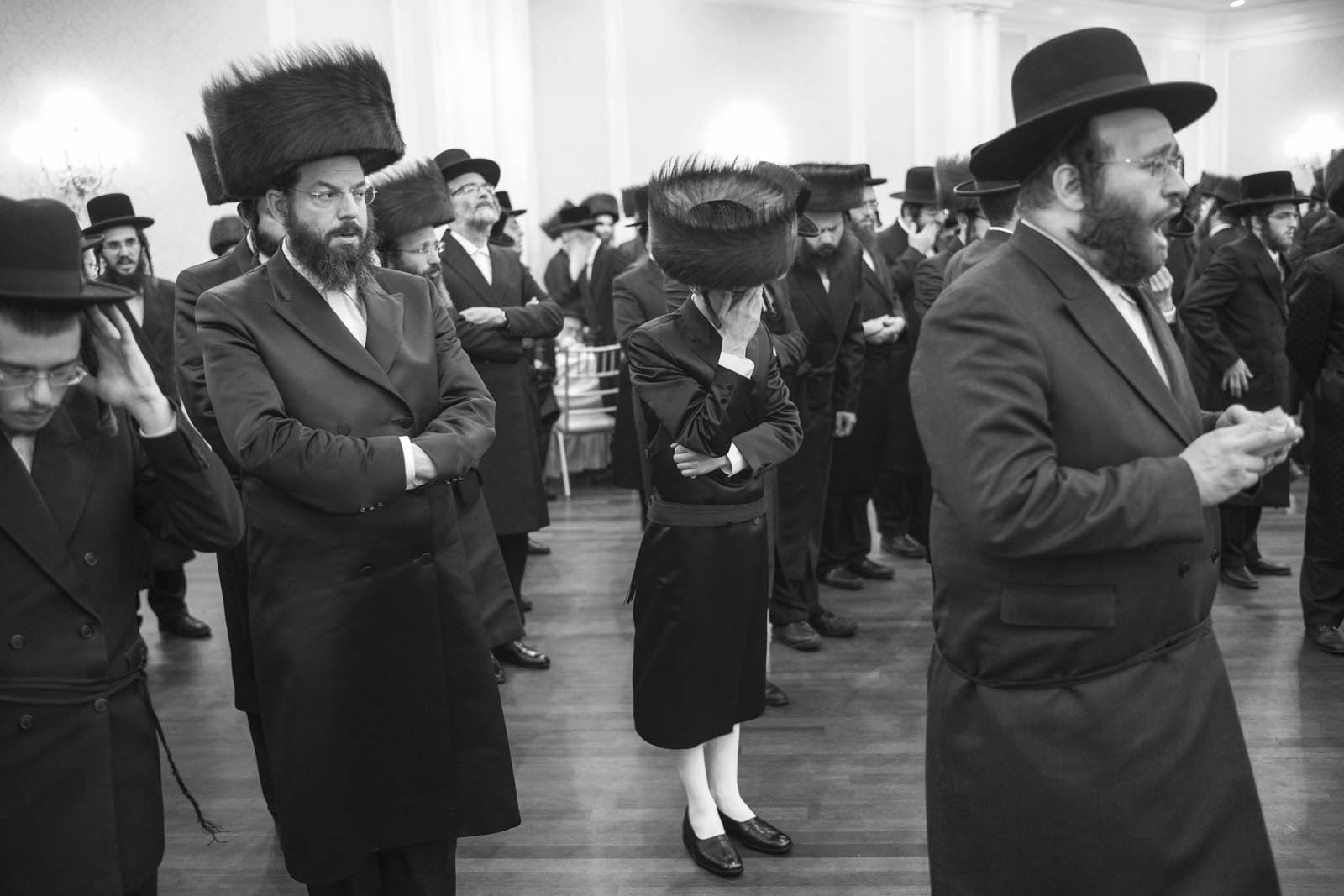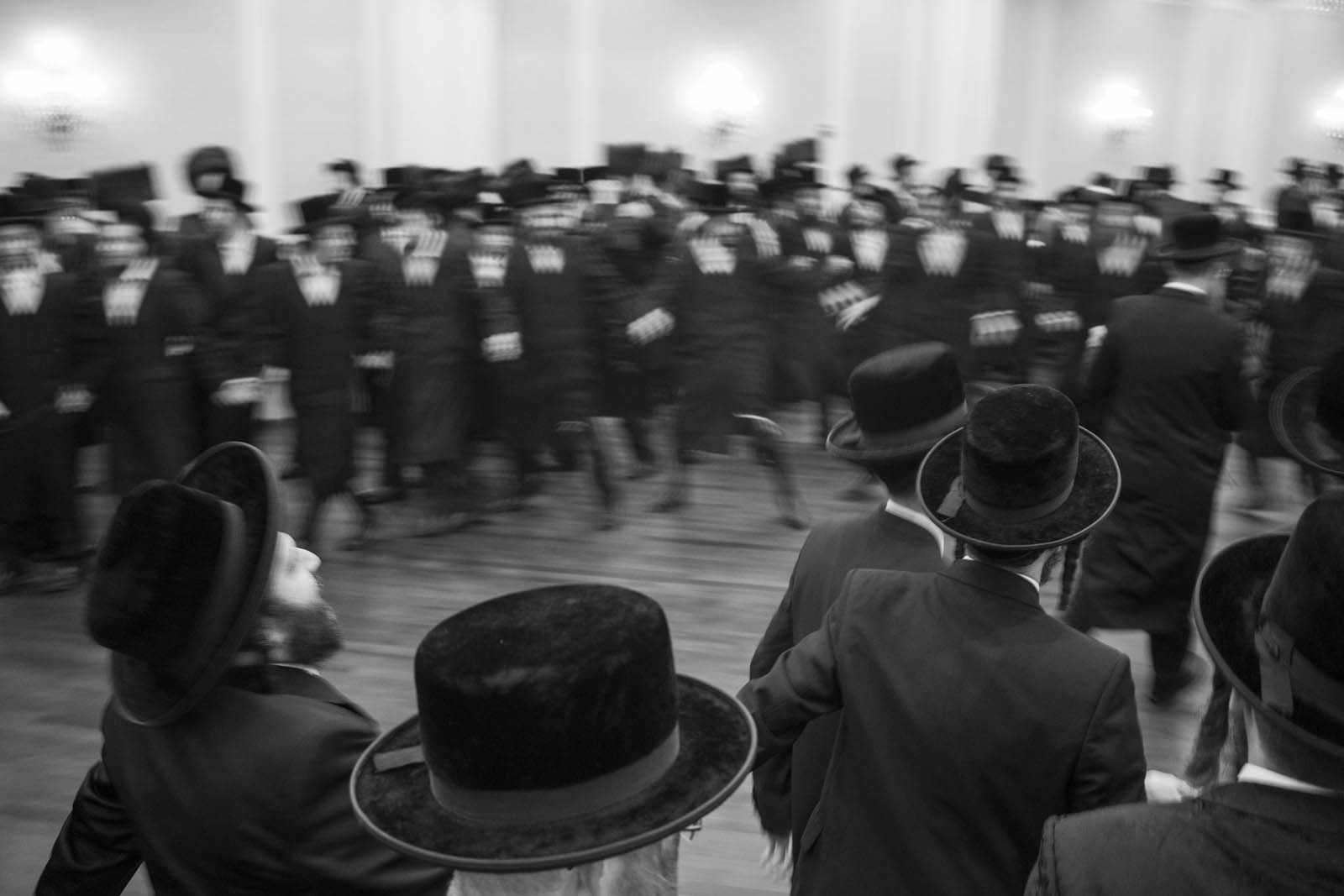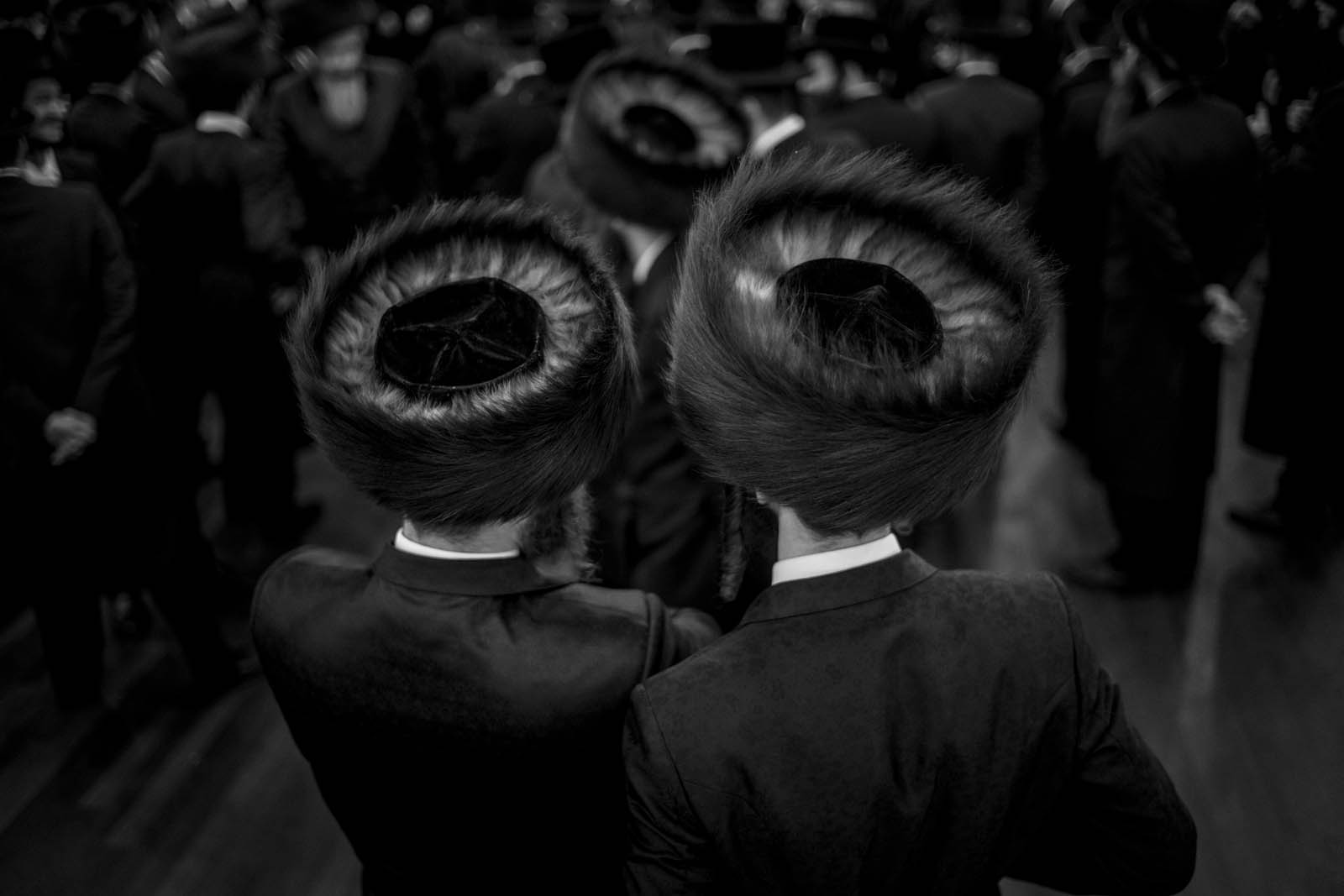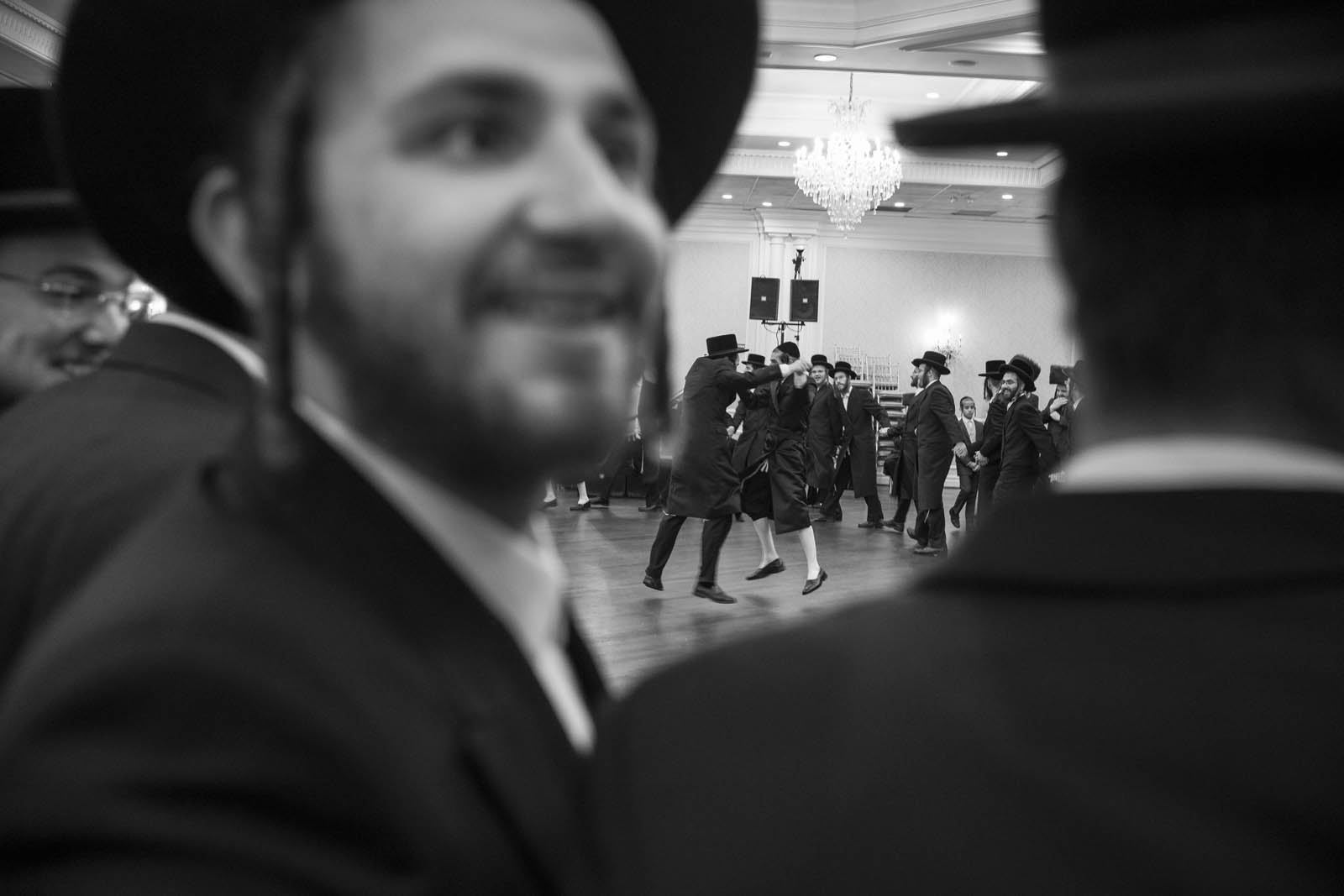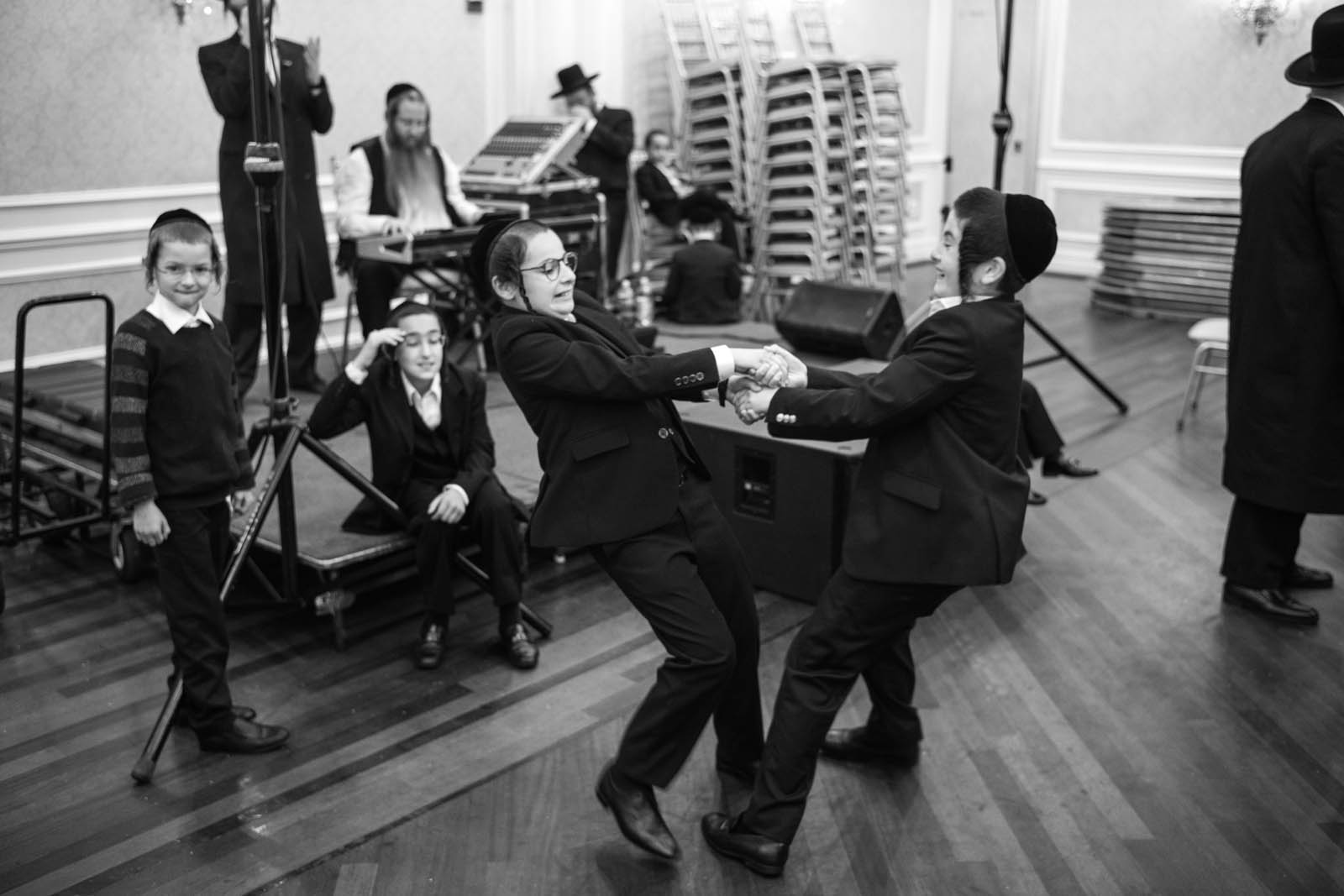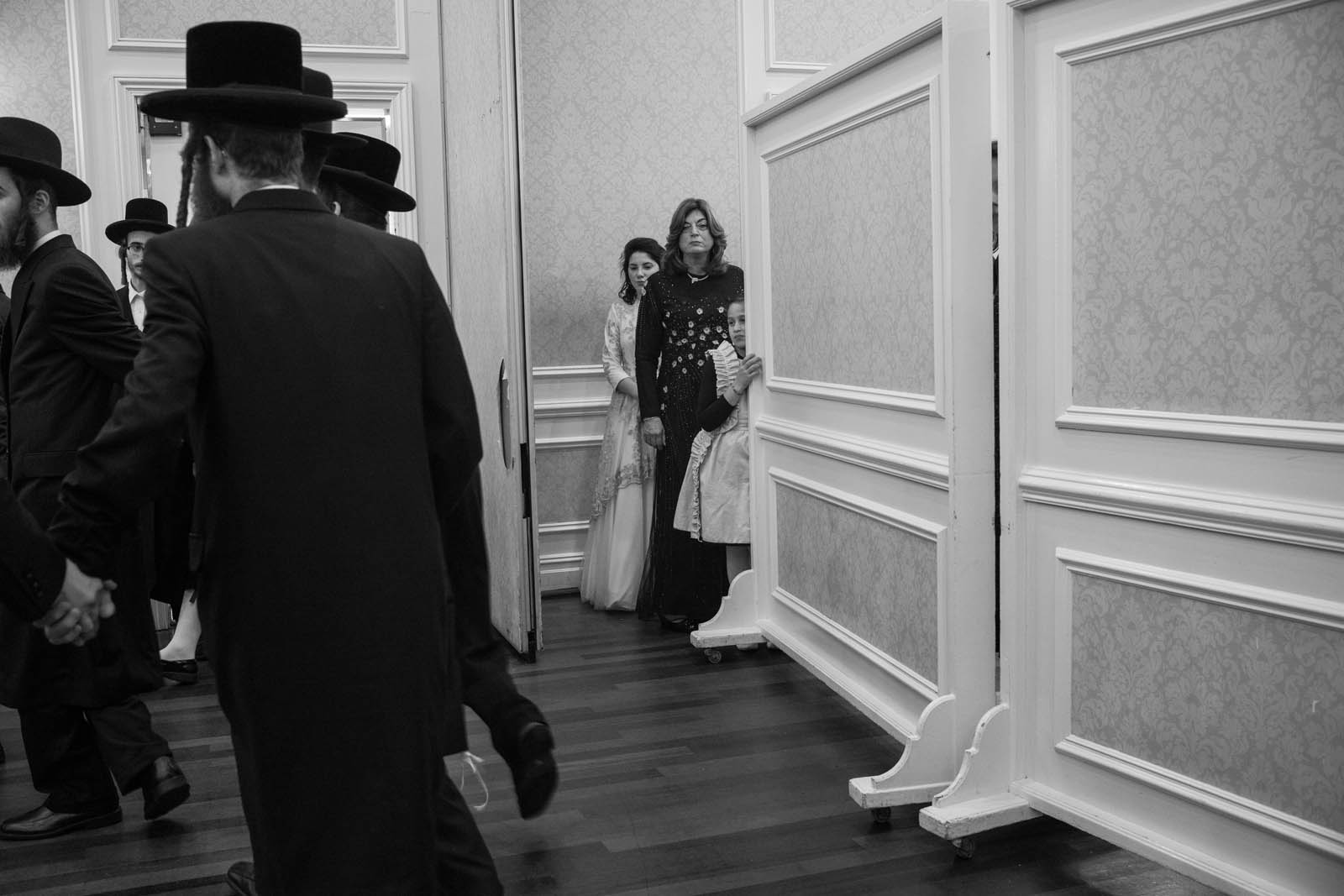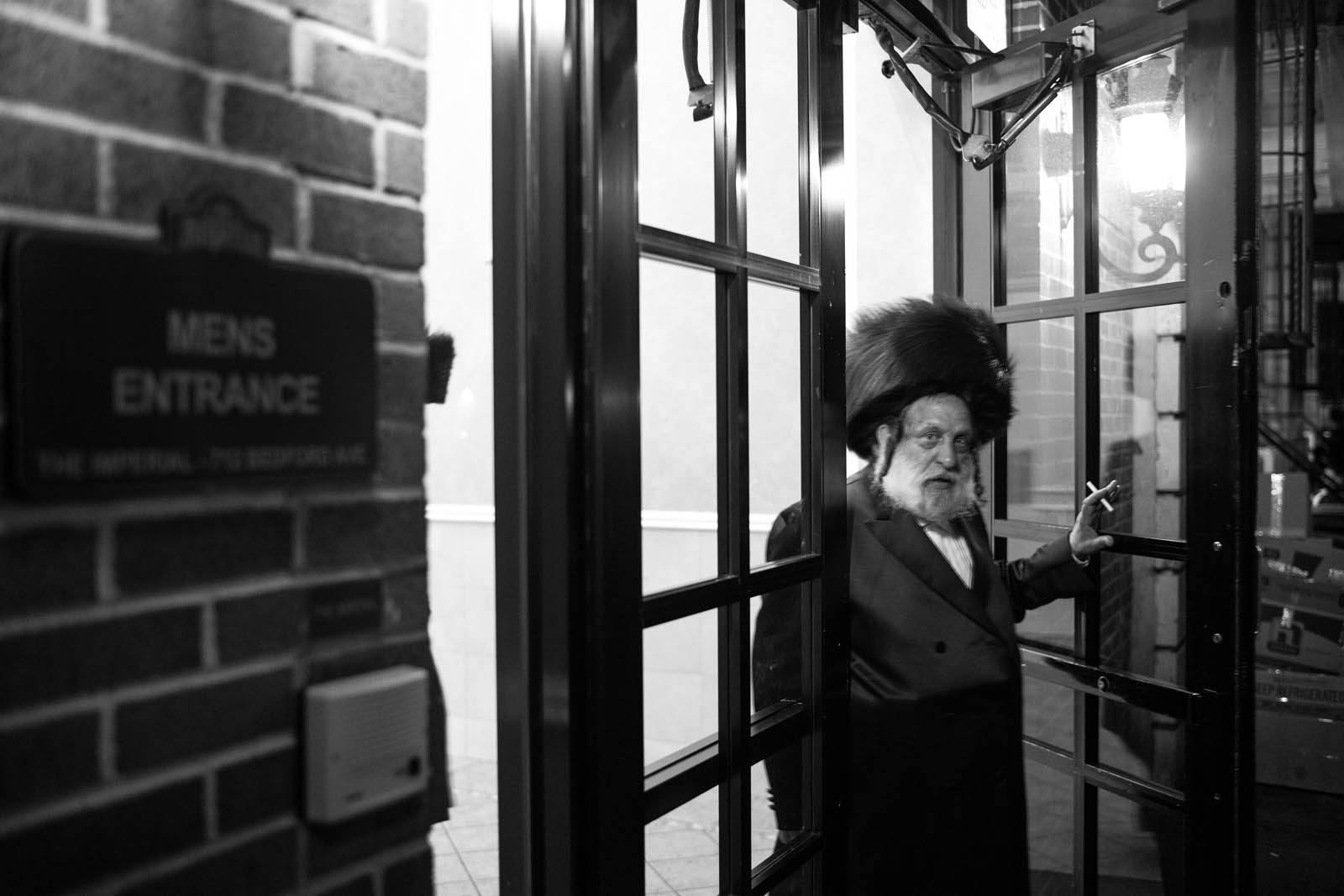Weddings offer a glimpse into a culture’s traditions and values. Their ceremony, attire and even location project its understanding of companionship and family. I recently had the opportunity to attend an ultra-orthodox Jewish wedding in New York’s insular Charedi community where its traditions were on full display.
Inside Imperial Hall, a South Williamsburg, Brooklyn event space catering to the ultra-orthodox Jewish community, the dining tables were arranged, the singer and keyboardist set up, and mechitza (a room divider separating genders) secure.
The groom, Usher-Tzvi walked toward his betrothal flanked by his brother-in-law and future father-in-law. Soon he would chant the wedding prayers intertwining his future with Chany. The pair had met for a few chaperoned hours twice before. As he walked, Usher-Tzvi’s jaw was clenched like boxer approaching the ring. Its taught lines revealed the inner workings of a 22-year old stepping into adulthood.
The Ceremony
A group of mostly family members huddled in the street outside of the hall. The bride and groom stood underneath its awning that doubled as the chuppa (or wedding canopy). A rabbi with a long scraggly gray beard sang the wedding blessings while the veiled Chany circled Usher-Tzvi. Chany walked around seven times, led by her mother and grandmother. Chany’s veil completely obscured her face and vision, like the biblical attire in Jacob’s marriage to Rachel and Leah.
When the ceremony finished, the newlywed couple went hand in hand into a private room. The first time they were alone together and likely alone with a non-family member of the opposite sex.
The Party
With the consummation complete, the evening began. The men were dressed in long vests, fur hats. Their springy side curls bobbed as they recited the evening prayers – mostly from memory. Some quietly read under their breaths from cell-phone prayer apps.
Once complete, the party began. Table were set, bottles of wine clinked. Waiters delivered food and what seemed like moments later, they swept half eaten plates away. Tables were removed, chairs pushed to the wall and the still-divided hall became a giant dance floor.
The men circled the room, holding hands and singing, a frenzy of joy. Their side curls streaming parallel with the floor, carried by the circular momentum. In the center of the group, the groom danced with family and friends, jumping up and down, sidestepping, smiling, laughing, brimming with elation.
The Women
Beyond the room’s divider, the women celebrated separately. Occasionally a woman would peak through the room divider’s cracks, observing the men’s festivities. Otherwise – as is the custom – the men and women celebrated separately, their joy linked by Chany and Usher Tzvi’s newfound partnership and if all goes well, newfound love.
